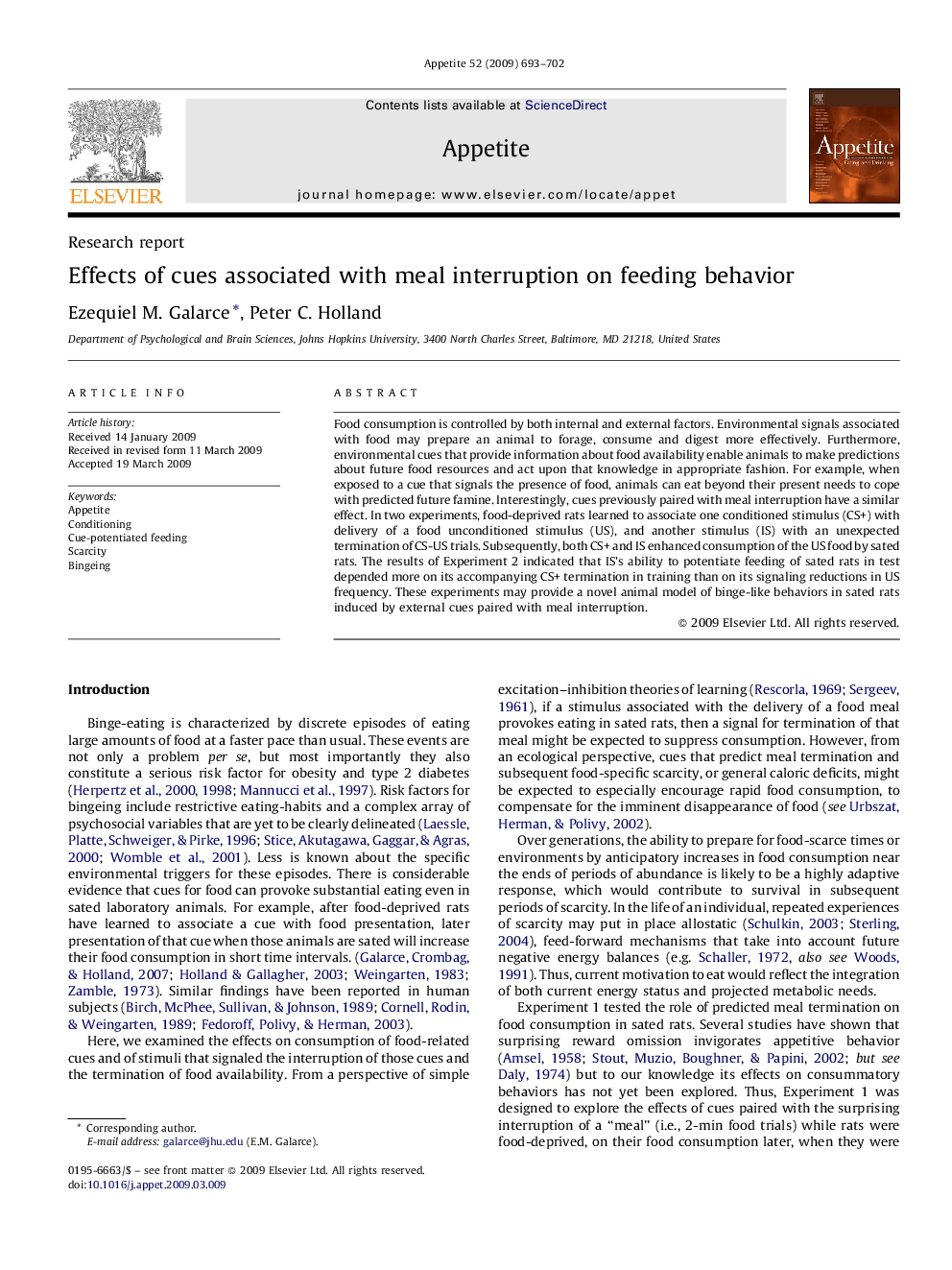| Article ID | Journal | Published Year | Pages | File Type |
|---|---|---|---|---|
| 941025 | Appetite | 2009 | 10 Pages |
Food consumption is controlled by both internal and external factors. Environmental signals associated with food may prepare an animal to forage, consume and digest more effectively. Furthermore, environmental cues that provide information about food availability enable animals to make predictions about future food resources and act upon that knowledge in appropriate fashion. For example, when exposed to a cue that signals the presence of food, animals can eat beyond their present needs to cope with predicted future famine. Interestingly, cues previously paired with meal interruption have a similar effect. In two experiments, food-deprived rats learned to associate one conditioned stimulus (CS+) with delivery of a food unconditioned stimulus (US), and another stimulus (IS) with an unexpected termination of CS-US trials. Subsequently, both CS+ and IS enhanced consumption of the US food by sated rats. The results of Experiment 2 indicated that IS's ability to potentiate feeding of sated rats in test depended more on its accompanying CS+ termination in training than on its signaling reductions in US frequency. These experiments may provide a novel animal model of binge-like behaviors in sated rats induced by external cues paired with meal interruption.
